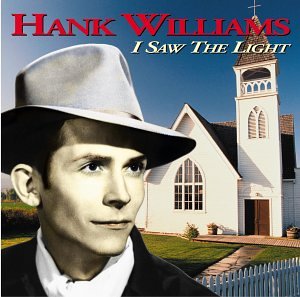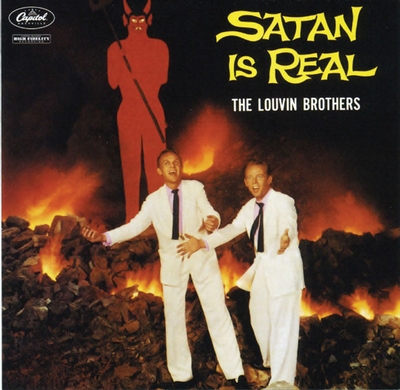For all that country music is often caricatured as being preoccupied principally with pick-up trucks, guns and dying dogs, it is in fact the genre of popular song in which the great theological questions are most often addressed. The following is an inevitably partial – in both senses of the word – list of country’s best songs about the Almighty, and his rival downstairs.
God
 Hank Williams
Hank Williams
Bobby Bare, “Dropkick Me, Jesus” (1976) “. . . through the goalposts of life,” entreated the rest of the chorus. A reminder that country, for all its sentimentality, is the only genre that regularly assumes God has a sense of humour.
Billy Joe Shaver, “If You Don’t Love Jesus” (2007) The gnarled veteran casts Jesus as a barstool-swinging ass-kicker, suggesting that those who won’t get with the programme may shortly find themselves inhabiting warmer climes.
Hayes Carll, “She Left Me for Jesus” (2008) The Texan troubadour counts the romantic cost of his girlfriend’s conversion. “I bet he’s a commie,” Carll laments, “or even worse yet, a Jew.”
Robbie Fulks, “God Isn’t Real” (1998) To a perfect pastiche of an Appalachian gospel tune, the contrary alt.country strummer sets a high bar in the undersubscribed field of atheist country songs.
The Devil
 The Louvin Brothers
The Louvin Brothers
Kris Kristofferson, “To Beat the Devil” (1970) An audacious updating of Christ’s encounter with Lucifer during his desert wanderings, though in this case Satan tries to tempt Kristofferson from the life of an itinerant singer. Not only does Kristofferson ignore him, he swizzes a free beer from him. Result.
The Charlie Daniels Band, “The Devil Went Down to Georgia” (1979) Rollicking chronicle of an unlikely Armageddon, in which Beelzebub is vanquished after being out-fiddled by a young man known only as Johnny.
Steve Earle, “The Devil’s Right Hand” (1988) Earle adapts the devil-made-me-do-it motif as a recurring excuse for the misdemeanours of an incorrigible gunslinger.
Drive-By Truckers, “Wallace” (2001) An unusual narration from the Devil’s own point of view, as he prepares for the arrival of a long-awaited guest: long-serving Alabama governor George Wallace.

